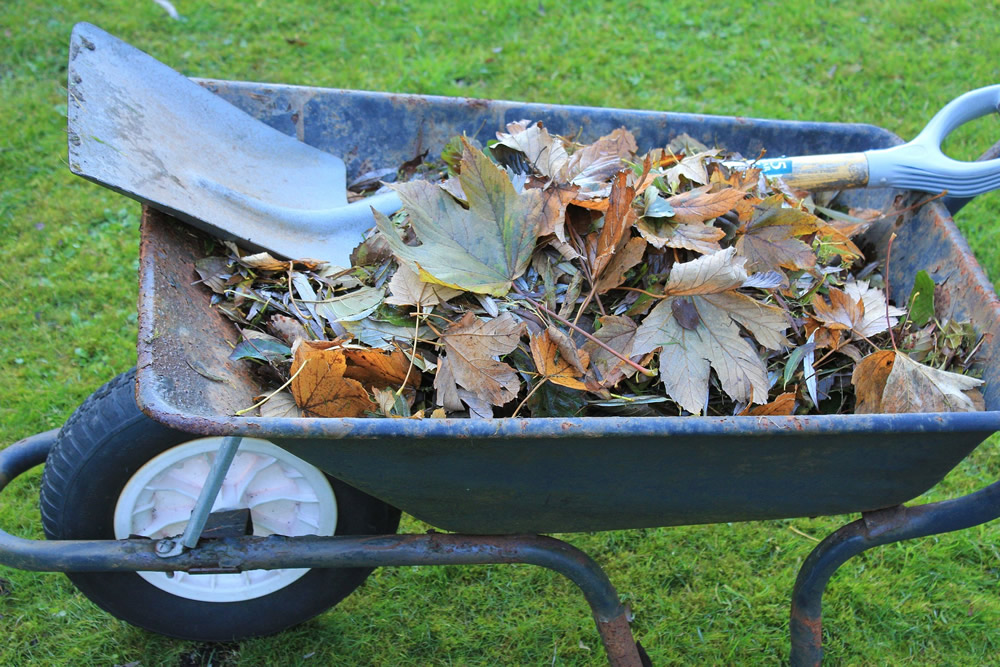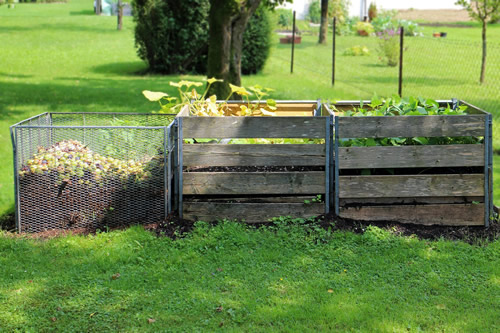
Tidying the garden whether it be mowing the lawn or trimming back hedges is time consuming, then you are left with piles of garden waste to manage which is another job to add to the list. Burning garden waste on a bonfire or in an incinerator is now deemed as inconsiderate for neighbours and the environment, but there are other ways we can manage our garden waste and increase biodiversity in the garden. Before we dispose of our garden waste at the local tip or squeeze another bag full into the green bin consider whether we can re-used it in the garden.
Composting is not a new thing, but still less than 5% of households use a compost bin. Up to 30% of our household waste generated could be composted and when it’s mixed with garden waste can produce a nutrient rich soil conditioner.
Please see our blog on The Environmentally Friendly Gardener for hints and tips on what to compost.
Bulky clippings and woody pruning’s can be difficult to cut by hand, using a shredder is the quickest way of reducing branches and twigs.
We recommend:
Cobra QS2500 Electric Garden Shredder £189.95
Handy Impact Electric Garden Shredder with Box £130
Freshly shredded chippings can be distributed directly around mature shrubs and established trees. This acts as a protective barrier, creating a warm and moist top layer. Any leftover chippings can be layered in a compost bin with nitrogen-rich waste. Younger plants and new borders would benefit from well decomposed soil condition rather than fresh green chippings.
If you have space to dry out wood and hardier chippings, they can be used to start a wood burner, chimenea or BBQ.
Larger branches or logs can be stacked into piles to create a haven for wildlife and organisms. Natural planting of ferns, snowdrops and crocus around the logs can create an attractive feature to your garden.A log splitter can be a quick and effective way of producing logs.
We recommend:
Mitox 4 Tonne Electric Log Splitter £199
Portek Charger Quiksplit 8.5 Tonne Electric Log Splitter £599
Mulching grass cuttings instead of bagging them not only gets the grass cut quicker it is an excellent conditioner for the lawn. If you decide to collect grass cuttings they can be layered into your compost bin with the other garden waste.
See our blog on making the most of your mulching lawnmower
Grass and brash piles will encourage hedgehogs, beetles, amphibians to make a home in your garden and in turn attract more birds. Pick a secluded, dry spot in the garden, perhaps behind a shed or in a corner. Rake up grass cuttings and fallen leaves into a pile, add small branches and cut nettles. A cover can be added to create a warmer environment for reptiles.
If you have a large amount of garden waste to get rid of, using the local household waste depot, a doorstep green waste service or hiring a hippo bag are practical options.
We sell a range of garden trolleys to take the strain out of moving garden waste.
We recommend:
Cobra 200kg Capacity Poly Hand Cart £67.99
Handy Deluxe Large Garden Trolley £129.98

Garden waste isn’t always organic. Old compost bags can be reused to line hanging baskets. Old pond liners can also be used to line hanging baskets and raised beds. With over 500 million plastic garden pots being used each year, it is definitely a good idea to wash and reuse them.
We hope you have found these garden waste tips useful. For more information on home composting please see the RHS website here
